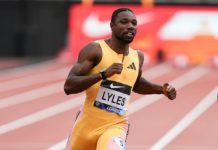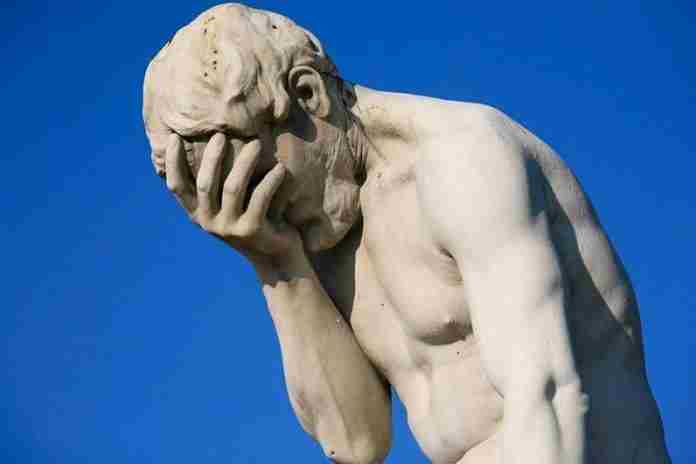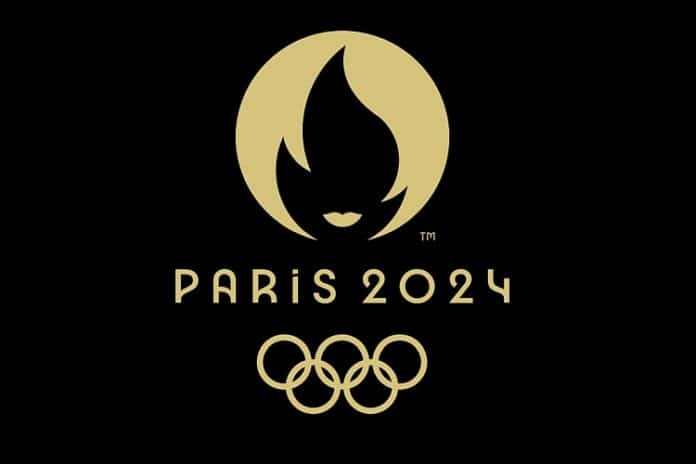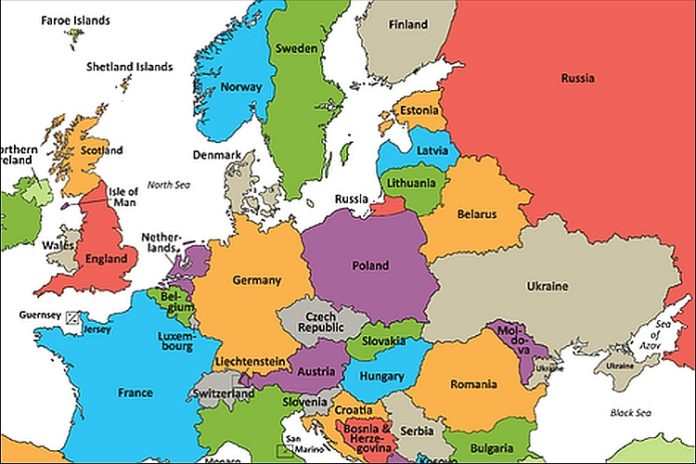★ The Sports Examiner: Chronicling the key competitive, economic and political forces shaping elite sport and the Olympic Movement.★
★ Thank you to our 22 donors, who have now covered 51% of our technical expenses for the first half of 2023. Please consider a donation. Thank you in advance. ★
★ To get The Sports Examiner by e-mail: sign up here! ★
≡ THE 5-RING CIRCUS ≡
1. ROC chief says IOC’s conditions “unacceptable,” IOC slaps back
2. Ukrainian political advisor calls IOC “promoter of war”
3. Tokyo bid-rigging scandal had $307 million at stake
4. Van der Vorst alleges bribes in IBA election mess
5. Strong ratings for U.S. Figure Skating Nationals
A pretty rough day on Tuesday, as charges, criticism and replies flew between Moscow, Kyiv and Lausanne, as well as within the International Boxing Association. Russian Olympic Committee President Stanislav Pozdnyakov continued his condemnation of the sanctions imposed by the International Olympic Committee, calling the continuing sanctions “unacceptable.” The IOC shot back with a statement that the restrictions are “not negotiable.” Meanwhile, a Ukrainian political advisor harshly criticized the IOC’s comments in support to exploring a path to re-integration of Russian and Belarusian athletes under specific conditions, saying it was a “promotion of violence.” The IOC rejected the “defamatory statements.” In Tokyo, it was reported that the total value of the contracts subject to the bid-rigging program with the Tokyo 2020 organizing committee, for test events and the Games proper, was in excess of $300 million U.S.! Dutch Boxing Federation chief Boris van der Vorst, in an explosive interview in an Amsterdam newspaper, said that African federations were, in essence, bribed to vote against a re-vote for the IBA Presidency last year, that confirmed Russian Umar Kremlev as the federation’s head. And he detailed new issues in pressure being put on referees and judges to favor a specific country’s fighters. U.S. television viewership of the U.S. Figure Skating Nationals on NBC last weekend was good, led by 1.874 million who watched last Friday’s women’s Free Skate on NBC.
1.
ROC chief says IOC’s conditions “unacceptable,” IOC slaps back
The war of words between the Russian Olympic Committee and the International Olympic Committee over Russia’s exclusion from international sport got hotter on Tuesday, as Russian Olympic Committee President Stanislav Pozdnyakov told reporters in Moscow:
“Are Russian athletes required to condemn the [‘special military operation’ in Ukraine]? This conclusion is wrong, they are not even in the current criteria, which we continue to consider unacceptable. This is not a direct reference to welcoming or not welcoming the [‘special military operation’].
“Russians must participate on the same conditions as athletes from other countries. We do not welcome additional conditions and criteria, especially those that include some kind of political component that is absolutely unacceptable for the Olympic Movement.”
Pozdnyakov also explained that he expected the process by which Russian athletes would be able to qualify for the Paris 2024 Games to take some time:
“Now the International Federations are consulting with the IOC, on the basis of which conditions and approaches will be worked out, which later the IOC will publish. The current agenda is unacceptable for the global Olympic Movement.
“Every sports competition is unique, so a one-size-fits-all approach is impossible. This is why the IOC allocated at least a one-month long period to take care of this work.”
And he added:
“Not only the [National Olympic Committee] of China supports the participation of Russian and Belarusian athletes, but also the vast majority of National Olympic Committees – which I would like to focus on– including the NOCs of those countries that, from a political point of view, are not Russia’s closest friends.
“But that’s why the role of the Olympic Movement is important in putting sport above politics. We welcome this approach from the vast majority of the world’s National Olympic Committees.”
Well, the IOC wasn’t happy with Pozdnyakov, and issued its own statement, reiterating:
“The sanctions against the Russian and Belarusian State and Governments are not negotiable. They have been unanimously confirmed by the recent Olympic Summit meeting on 9 December 2022.
“They are: No international sports events being organised or supported by an IF or NOC in Russia or Belarus. No flag, anthem, colours or any other identifications whatsoever of these countries being displayed at any sports event or meeting, including the entire venue. No Russian and Belarusian Government or State official should be invited to or accredited for any international sports event or meeting.”
The IOC statement did not refer to its 25 January statement, which included a description of the minimum conditions under which Russian and Belarusian athletes might be allowed to compete again, in Asian competitions, including the neutrality provisions above and:
“[O]nly athletes who fully respect the Olympic Charter would participate. This means in particular: first, only those who have not acted against the peace mission of the IOC by actively supporting the war in Ukraine could compete. Second, only athletes who fully comply with the World Anti-Doping Code and all relevant anti-doping rules and regulations would be eligible. There must be individual checks carried out for all entered athletes.”
In the meantime, Russia took the first, small steps in organizing a multi-sport competition with athletes from BRICS countries (Brazil, Russia, Iran, China, South Africa), Shanghai Cooperation Organization and the Commonwealth of Independent States, announcing the formation of a “university sports festival” organizing committee under the leadership of Deputy Prime Minister of the Russian Federation Dmitry Chernyshenko. According to TASS:
“The International University Sports Festival with the participation of teams from the BRICS, SCO and CIS countries in Yekaterinburg. It will be held from 19 to 31 August in 15 sports. The preliminary list of educational institutions that will become potential participants in the festival includes 246 universities from 94 countries.”
2.
Ukrainian political advisor calls IOC “promoter of war”
Following up on last Friday’s remarks by Ukrainian President Volodymyr Zelensky criticizing the IOC’s discussions on possible re-admission of Russian and Belarusian athletes to international competitions, political advisor Mykhailo Podolyak raised the temperature with an angry Saturday tweet:
“#IOC proposes to the world promotion of violence, mass murders, destruction. That’s why it insists [Russian flag] athletes should participate in contests as real ‘ambassadors of death’ … Sport doesn’t exist outside politics – sport promotes it. Thus, the IOC promotes the [Russian flag] anti-human policy.”
And he doubled down in a Monday tweet:
“#IOC is a promoter of war, murder & destruction. The IOC watches with pleasure RF destroying [Ukraine flag] & then offers [Russian flag] a platform to promote genocide & encourages their further killings.
“Obviously ru-money that buys Olympic hypocrisy doesn’t have a smell of [Ukraine flag] blood. Right, Mr. #Bach?”
Reuters reported a statement in reply from the IOC:
“The IOC rejects in the strongest possible terms this and other defamatory statements.
“They cannot serve as a basis for any constructive discussion.”
Observed: It’s an astonishing, horrible, twisted environment in which both Russia and Ukraine are hurling insults at the IOC, but here we are. And the dangerous parallels with 1980 that followed the Soviet invasion of Afghanistan are beginning to build, only this time with a potentially different outcome: no boycott in the end, but athletes, coaches and team officials from Russia (and its allies) nose-to-nose in the Olympic Village and the competition venues in Paris with those from Ukraine (and its allies).
IOC chief Thomas Bach (GER) spoke last February about “protective measures” that were needed to maintain competitor security and keep governments from deciding who could compete where. These are still in force and rather than being relaxed, may need to be reinforced in order to have the Paris 2024 Games come off peacefully.
3.
Tokyo bid-rigging scandal had $307 million at stake
Kyodo News reported that there was a lot more than vanity at stake for Japanese ad giants Dentsu, Hakuhodo and others in the Olympic test event bid-rigging scandal. The 26 contracts available to operate test events for the Tokyo 2020 organizing committee were cumulatively worth about ¥538 million (about $4.13 million U.S.), eventually awarded to nine companies and a consortium.
But the much larger prize of contracts totaling as much as ¥40 billion – or about $307.4 million U.S. – was then available to operate the same venues during the Olympic Games itself, as long as the test events were completed successfully.
Tokyo prosecutors and the Japan Fair Trade Commission are examining the conditions under which the test-event contracts and then the venue management contracts were awarded. According to Kyodo:
“[A]lmost half of the 26 open [test-event] bids only had one bidder. Prosecutors suspect that the former [Tokyo 2020] operations executive and other officials repeatedly updated a list of firms to use in arranging successful bidders” and there was concern that there would not be a sufficient number of firms to handle all of the test events, let alone the Games.
4.
Van der Vorst alleges bribes in IBA election mess
“Earlier, the opposing party in Africa had organized a special congress and bound all African countries to it with envelopes with money for boxing equipment. After that conference, some African officials were stopped at the border because they were carrying too much cash. I myself received calls from African federation chairmen who said: you have a good story, but what are you going to pay me? That’s a match you don’t want to, and can’t win.”
That’s just one paragraph from an explosive interview by Dutch Boxing Federation head Boris van der Vorst in the Amsterdam-based daily, De Volkskrant, published last Friday (27th).
In it, van der Vorst, who ran for President of what is now the International Boxing Association (IBA) and lost to Russian Boxing Federation Secretary General Umar Kremlev in December 2020, challenged again in May 2022, but was declared ineligible by an IBA committee one day before the vote. That decision was overturned by the Court of Arbitration for Sport, but instead of holding another election between van der Vorst and Kremlev, IBA held a vote to decide whether there would be a vote and it failed, confirming Kremlev in office.
Van der Vorst’s comments about Africa related to the election not to have an election, held in Yerevan, Armenia, a former Soviet Republic. Van der Vorst said:
“I was visited the night before by a deputy from a former Soviet country who said: ‘We are with you, but we are not allowed to vote for you. Tomorrow the voting devices will fail and then you will have to demand paper voting.’
“I didn’t get the chance to do that. But he was right: voting started and the boxes went down. Power failure. That lasted for three quarters of an hour and then suddenly there were 26 more voting countries in the room. Needless to say, I lost. We showed our teeth. That’s all we could do.”
As for refereeing and judging, a problem for boxing for decades, van der Vorst said it’s still going on:
“Shortly before [the repeat election], there had been a European boxing championship in [May in] Yerevan where the Armenian boxing federation put enormous pressure on judges to decide in favor of Armenian boxers. Seven Western European jurors who did not follow suit were sent home, arguing that their safety could not be guaranteed. That and the ruling of the CAS prompted the IOC to come up with an ‘enough is enough statement’ in June in which they actually turned away from the international boxing federation.”
Van de Vorst believes boxing will be held at Paris 2024, and in Los Angeles in 2028, saying “Boxing is too important to the IOC.”
For its part, the IBA told the InsideTheGames Web site:
“How does IBA respond to vague accusations and baseless attacks on our organisation from within?
“By reiterating the facts regarding our governance reforms and questioning the motive of Mr. van der Vorst and the unidentified sources of these wild accusations of bribery and threats.
“It is very simple, he cannot handle losing and refuses to do so with any dignity.”
5.
Strong ratings for U.S. Figure Skating Nationals
Audience data from Nielsen showed good interest in the U.S. Figure Skating National Championships from San Jose, California, even on a weekend dominated by the NFL’s conference championship games (all times Eastern):
● Fri., 27 Jan. (8:00 p.m.): 1.874 million on NBC (women’s Free Skate)
● Sat., 28 Jan. (2:30 p.m.): 1.017 million on NBC (Free Dance)
● Sun., 29 Jan. (3:00 p.m.): 961,000 on NBC (men’s Free Skate)
On cable:
● Thu., 26 Jan. (7:00 p.m.): 274,000 on USA Network (Rhythm Dance)
● Thu., 26 Jan. (10:00 p.m.): 242,000 on USA Network (women’s Short Program)
● Fri., 27 Jan. (5:00 p.m.): 211,000 on USA Network (men’s Short Program)
● Sat., 28 Jan. (8:00 p.m.): 421,000 on USA Network (Pairs Free Skate)
This was well down from the 2022 U.S. Nationals, which served as a qualifier for the Beijing 2022 Winter Olympic Games and was held early in January, with a high of 2.338 million for the women’s Free Skate on Friday evening. The three shows on NBC averaged 1.631 million viewers, and the four shows on USA averaged 405,500.
¶
The USA-Colombia men’s football friendly on Saturday in Carson, California drew a combined audience of 956,000, with 540,000 watching the Spanish-language broadcast on Telemundo and 416,000 taking it in on TNT in English.
≡ PANORAMA ≡
● Aquatics ● World Aquatics announced its fifth “Centre of Excellence,” to be housed at the University of Technology Bahrain, with the federation also opening a regional office in the country.
New facilities will be built to accommodate swimming, diving, water polo and artistic swimming, with an eye toward events that can add to Bahrain’s sports tourism program. The federation currently has Centers in Thanyapura (Thailand), Dakar (Senegal), Cape Town (South Africa) and Davie (U.S./Florida).
● Football ● In a good sign, Australia’s opening match at the 2023 FIFA Women’s World Cup on 20 July against Ireland has been moved from the 42,512-seat Sydney Football Stadium to the iconic, 83,500-seat Stadium Australia, made famous at the 2000 Olympic Games.
The move is in response to good ticket sales for Australia’s opener in Group B; the Matildas will play their other group games in Brisbane and Melbourne.
¶
U.S. Soccer announced the implementation of additional recommendations from the Yates Report on abuse in the National Women’s Soccer League, notably a “Safe Soccer” project which aims to review key hires before they are made, rather than disciplining malefactors after an incident.
Further, amendments to the federation’s Pro League Standards – applicable to Major League Soccer, NWSL, United Soccer League and all other affiliated with U.S. Soccer – will be offered for a confirming vote at the March USSF Annual General Meeting. These include, but are not limited to a player-safety officer for each league, dedicated human relations staff, added training, reporting of allegations and annual safeguarding reports.
¶
You can receive our exclusive TSX Report by e-mail by clicking here. You can also refer a friend by clicking here, and can donate here to keep this site going.
For our updated, 929-event International Sports Calendar for 2023 and beyond, by date and by sport, click here!




























